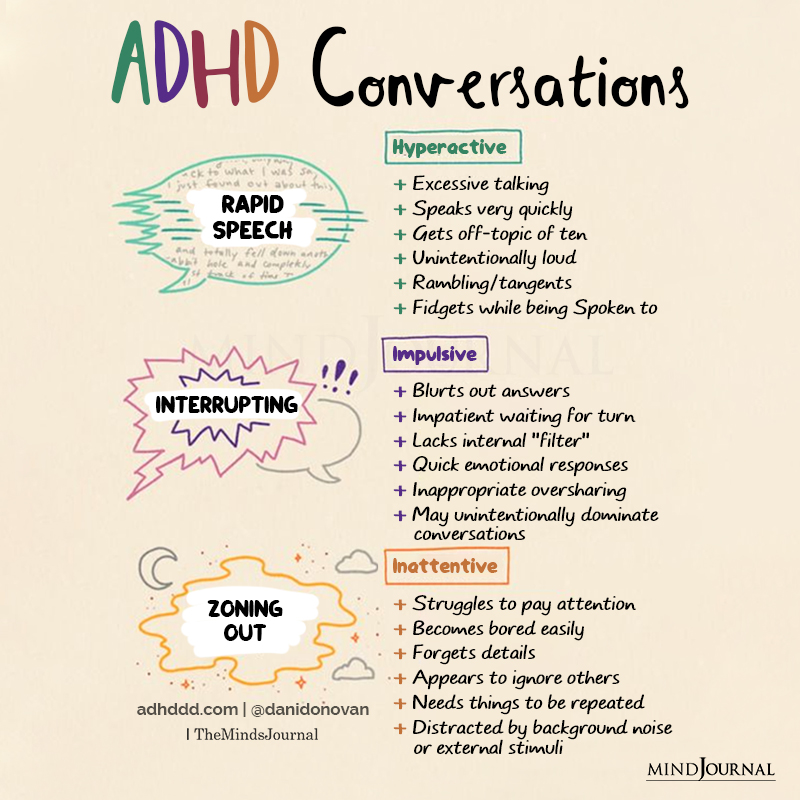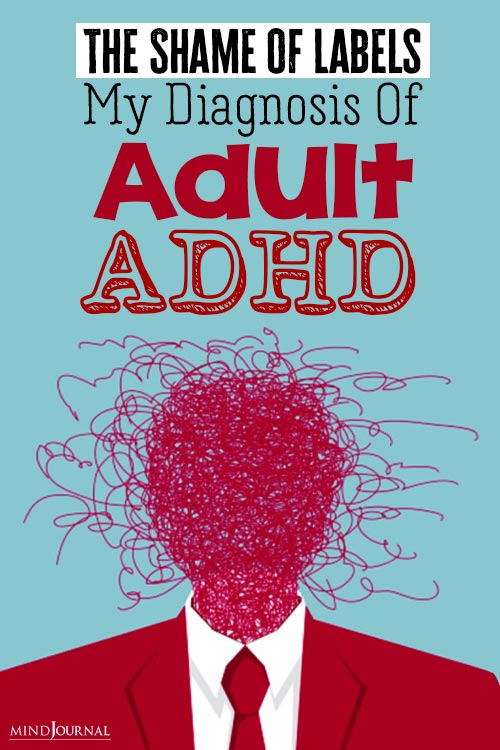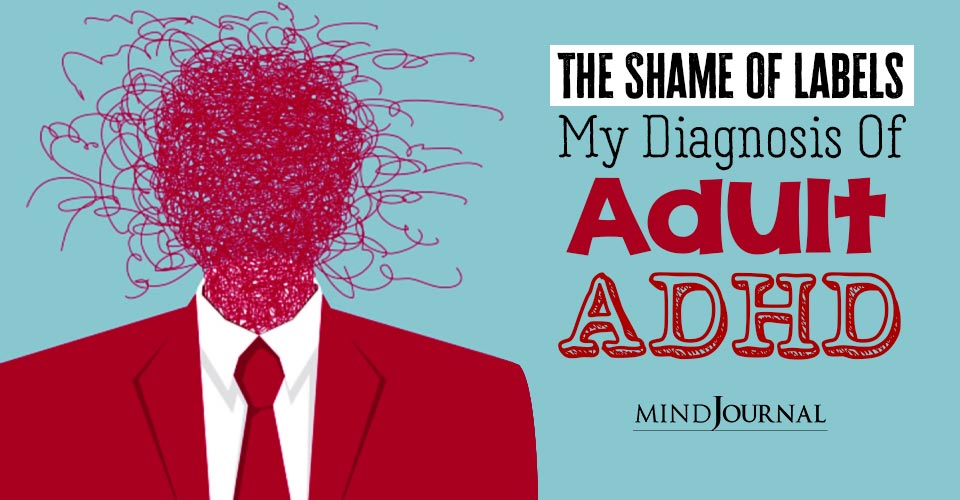This post is all about Michelle Arbeau’s experience and journey with adult ADHD. So, what is adult ADHD, and what really happens when you’re diagnosed with it? Let’s find out!
I remember being a painfully shy child throughout school. Yet, I always excelled. So much so that I was placed in enriched math in middle school and my mother was approached by the school board with the offer to bump me ahead a school year but she declined.
In my early twenties, I began a career in corporate banking HR and excelled there, too. However, it wasn’t long before the monotony of office life set in and I got the itch to jump ship. I went to see a psychologist because I thought I had depression. Turns out, I did, but it was what she called “situational depression.” Basically, fix what I didn’t like about my life and my depression would go away. I didn’t have a chemical imbalance, just a life imbalance.
At that time, I remember mentioning to her that loud noises often bothered me. She referenced something about “Sensory Integration” but didn’t really elaborate and I didn’t probe further. In hindsight, it was a clue of what was to come.
Related: What Does Autism Look Like in Adults? Common Adult Autistic Traits
At the tender age of twenty-four, I quit my high-paid corporate position and set off on a quest to be my own boss. Twenty-five years and counting, I’ve been a successful, thriving entrepreneur who moved from a small town on the East Coast of Canada to Tinseltown, Los Angeles, California.
Fast forward to 2015 and one of my close friends had mentioned she went to get tested for ADHD and discovered she in fact had it. Considering my nickname for years was “hummingbird” a lightbulb went off and I felt compelled by curiosity to go get tested myself.
I went for the testing and everything seemed fine until the nurse came back in and asked me if I had fifteen or twenty minutes. I said sure so she proceeded to tell me that she had been able to secure an immediate appointment with a psychiatrist. The normal procedure was to go through the testing and you were booked with a shrink a couple of weeks later.
I walked into the psychiatrist’s office and sat down. I wasn’t prepared for what he was about to tell me but it all made sense. He told me I had severe ADHD and would need to be placed on medication. He kept talking but at that point, I zoned out. I was in shock. Never did I dream I’d be diagnosed with what was not only classified as a mental illness but a disability.
I prided myself on earning my way into the United States on the coveted 0-1 Visa for Extraordinary Individuals, a professionally assessed IQ of 138, and a crazy successful career as an author, speaker, and number one Numerologist in the World. How could I possibly have a mental illness and a disability? Everything felt surreal. Like time had stopped. I saw the doctor’s mouth moving in slow motion as I blankly stared forward. My thoughts running a mile a minute.

I left that day with a prescription for Ritalin. I didn’t fill it for two weeks. During that time, I went through a spectrum of emotions – from sad to angry and everything in between. I was devastated, to say the least. I told no one. Not a soul. Not even the friend who had been tested first. I was ashamed. Utterly ashamed.
How would anyone take me seriously knowing I had severe ADHD? My career would be over. I’d be the laughing stock. From my diagnosis in November of 2015, I kept my secret close until just after the Covid Pandemic began. I began to see so many people struggling as mental illness skyrocketed to astronomical levels.
Depression and anxiety took hold and suddenly I didn’t feel so different or alone. In fact, for the first time, I was relieved that I had ADHD and not something more dire.
As a person who has always been deliberately transparent, I felt I couldn’t keep this a secret any longer. People needed to hear that mental illness isn’t just mostly among the homeless population (approximately 75% of the homeless suffer from mental illness in Los Angeles).
I’m above all, a true inspirationalist. I live and breathe inspiring others in any way, shape, or form. I knew I had to come clean and tell my story, so I did, and it felt AMAZING. I’ve been berated before for sharing “too personal” stuff on social media but if even one person can resonate and be helped by my story, I’m game.
Related: 22 Symptoms and Signs of High-Functioning Autism In Adults
I received an enormous influx of responses – both in comments and private messages and emails. My fans and followers were proud of me for having the courage to reveal such a personal piece of my story and journey. It wasn’t devastation as I’d imagined. Rather, it was being set free again, to be me. Totally and unapologetically me.
I believe my “mental illness and disability” has been a huge factor in my life’s success story. I can multi-task like nobody’s business and I’m always asked how I’ve accomplished so much success in such a short amount of time. I’ve also had endless people over the years say they envy me for having the guts to take the leap and make my dreams come true (of course I always tell them they can do it, too – step-by-step!)
My name is Michelle Arbeau and I have ADHD. If you Google my name, you’ll also see I have hundreds of thousands of pages with posts, articles, new stories, books, interviews, reviews – you name it. I did it all myself. Started from scratch and built my empire through sheer determination and will power. I may have ADHD but it doesn’t define me. It’s actually my Super-Power 😊
About the Author
Top Numerologist & Life Strategist, Michelle Arbeau, is considered the #1 leading expert in the World, Four-Time Bestselling Author, Motivational Speaker, Syndicated Columnist, Business Expert, CEO of Eleven Eleven Productions and Truth Tribe Productions. Arbeau frequently works with brand names and well-known clients such as Chanel/Karl Lagerfeld, J.J. Abrams, Michael Kors, Twilight Vampires, Big Bang Theory Actress, and many more.
A media favorite and a leading expert in her field, Michelle is frequently a repeat guest on national outlets such as CitiTV, CBC Radio, Kool 101.5, CTV Morning Live, Breakfast Television. FOX11, CLTV, and the History Channel.
Arbeau is the host of her own radio show and podcast at the Sunset Gower Studios in Hollywood called Life By The Numbers covering topics of spiritual growth, current affairs, celebrity news, and more through the lens of numbers.
In 2018, she launched her own jewelry and products line called Soul Numbers Jewelry & Gifts. Number-based, real gemstone sterling silver jewelry and all-natural ingredients in the healing/manifestation bath oils and sprays.
Her bestselling books, The Energy of Words: Use the Vibration of Language to Manifest the Life You Desire and Soul Numbers: Decipher the Message from Your Inner Self to Successfully Navigate Life are the product of combining her love of numbers with her passion for helping others to find purpose, meaning and joy in life.
Michelle’s next book and documentary The God Frequency & The 54 Patterns of Creation is in the publication process.
Written By Michelle Arbeau









Leave a Reply
You must be logged in to post a comment.